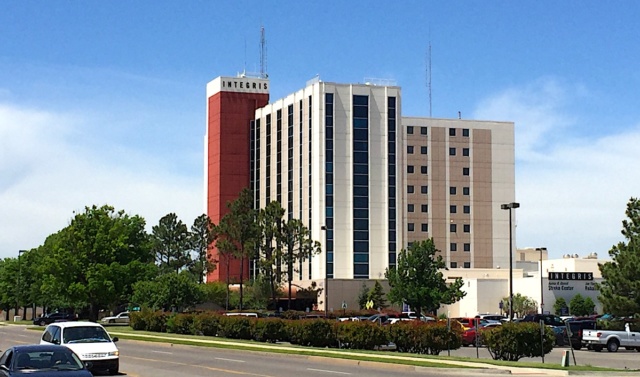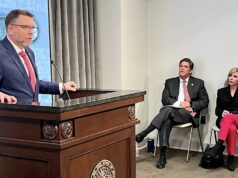
Comprehending major proposed changes to the Internal Revenue Code can be difficult and boring, but one need only read through page two of the GOP Senate’s Better Health Care Reconciliation Act of 2017 to find an amendment aimed at making life that much worse for some of the least among us.
The bill eliminates health insurance-marketplace tax credits for the family of an “alien lawfully present in the United States” if that family sits at less than 100 percent of the federal poverty level.
Who might that include? Foreign students legally studying at American universities, perhaps.
In full, the bill released last week and potentially facing a vote this week includes a great deal of cuts to important services and programs, primarily as it relates to Medicaid.
While the bill does address a few insurance issues — such as the Affordable Care Act’s now clearly problematic “age rating” adjustment — it offers almost zero hope that private health insurance would become more affordable for anyone. Instead, the bulk of the proposal’s impact on the American health care system would be to force large reductions in Medicaid coverage.
The New York Times summarized it thus:
The Senate measure, like the House bill, would phase out the extra money that the federal government has provided to states as an incentive to expand eligibility for Medicaid. And like the House bill, it would put the entire Medicaid program on a budget, ending the open-ended entitlement that now exists.
It would also repeal most of the tax increases imposed by the Affordable Care Act to help pay for expanded coverage, in effect handing a broad tax cut to the affluent in a measure that would also slice billions of dollars from Medicaid, a program that serves one in five Americans, not only the poor but also almost two-thirds of people in nursing homes. A capital-gains tax cut for the most affluent Americans would be retroactive to the beginning of this year.
Oklahoma continues to disincentivize work
Oklahoma might not fare as poorly as other states under such proposed Medicaid cuts because the state never opted to accept federal money to expand access to Medicaid (SoonerCare) for working adults in the first place. That’s one of the reasons Oklahoma remains tied for the fifth-highest “uninsured” rate in the nation, according to the Kaiser Family Foundation‘s latest data from 2015.
Currently, working Oklahoma adults can only receive Medicaid if they have children and earn less than 37 percent of the federal poverty level. That means a single parent seeking Oklahoma Medicaid is disqualified if he or she earns more than $6,008 per year.
Despite advocates harping on this nonsensical cap before, Oklahoma politicians have refused to consider expanding Medicaid and, thus, have continued to disincentivize work among the poor.
GOP refusing to admit reality
If the GOP Senate health bill passes, it would need to be reconciled with the previously passed House version, but the Medicaid cuts within each are similar.
Their effects would be to limit health care access for lower-income, older and disabled Americans while doing little to make private insurance more affordable for families that have been priced out of traditional markets.
In short, the bill would rob Peter and ignore Paul.
Like it or not, both those men need access to health care in their lives. The Republican Party — federally and locally — seems unwilling to admit such a need exists, and it certainly does not appear focused on finding a way to meet it.
(Editor’s note: The 142-page Senate bill can be read in full here. Referenced sections of the U.S. Code can be found here.)




















